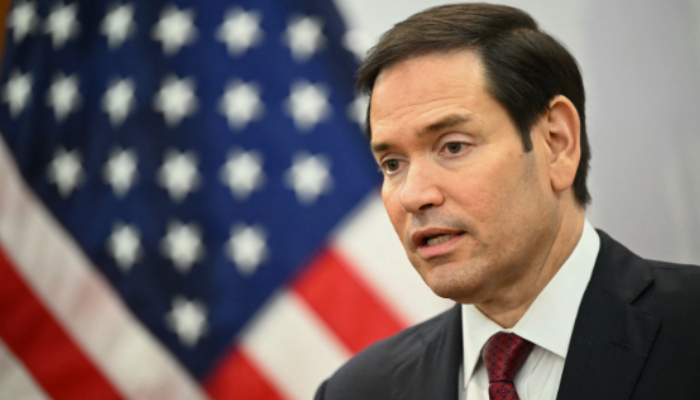
U.S. Secretary of State Marco Rubio faced a tough challenge at Thursday’s ASEAN summit, as he sought to reassure Indo-Pacific allies and partners who are increasingly unsettled by Washington’s unpredictable tariff policies and wavering signals on regional security commitments. His visit came on the heels of new U.S. tariff announcements, making it unlikely that his presence alone could ease the growing anxiety about America’s long-term role in the region.
Initially, many Asian allies believed their strategic value in the U.S.-China rivalry would secure them more favorable treatment compared to NATO countries. That belief, however, is beginning to erode.
The tone among Indo-Pacific partners has shifted noticeably since the early months of President Donald Trump’s second term, which had begun on a high note. In January, QUAD foreign ministers were given prominent seating at Trump’s inauguration. February saw a successful U.S.–Japan summit with Prime Minister Ishiba Shigeru, launching what was hailed as a “golden age” in bilateral ties. Defense Secretary Pete Hegseth’s visits to Asia in March and May further reinforced the message of U.S. commitment to the region. Japan was even seen as a front-runner for an early trade deal with Washington.
Despite lingering skepticism about Trump’s dedication to their defense, and concerns over his inclination for a sweeping deal with Xi Jinping, many Indo-Pacific nations believed they could manage relations with the U.S. president. They assumed their geopolitical relevance would shield them from harsher demands.
But this optimism has not materialized. In fact, it is precisely their strategic importance in the U.S.–China contest that has exposed them to heightened pressure and growing expectations from Washington.
5 per cent again
America’s support for its Indo-Pacific allies now comes with steeper costs, growing demands, and increasingly unpredictable terms.
Driven by its determination to counter China and maintain a regional balance of power favorable to itself, the U.S. is reassessing its partnerships through a narrow lens: does the cooperation serve American national security interests, and is it sufficient to deter Beijing? This singular focus on China has significantly raised the stakes for allies, compelling them to meet expectations that may clash with their own strategic goals or stretch their fiscal limits.
Nowhere is this more evident than in the escalating demands around defense spending. In June, reports emerged that Washington was urging Indo-Pacific allies to raise their defense budgets to 3.5% of GDP, up from a previous target of 3%. By the end of the month, the U.S. had reportedly increased its expectations to NATO-style commitments of 5% of GDP.
These rising demands have sparked visible frustration among key partners—except for the Philippines. Japan canceled a scheduled July meeting between its foreign and defense ministers and their U.S. counterparts. South Korea’s Defense Ministry issued a public defense of its current military budget, while Australian Prime Minister Anthony Albanese openly rejected the U.S. proposal. Shortly after Albanese’s remarks, the Pentagon announced a review of its involvement in the AUKUS submarine pact—a deal once considered the cornerstone of U.S. strategic cooperation in the region.
The Trump administration has also taken a more direct approach in urging allies to adopt a confrontational stance toward China. U.S. defense officials are pressuring Japan and Australia to clarify what roles they would play in a potential Taiwan conflict—even as the U.S. itself maintains a deliberately vague position through its policy of ‘strategic ambiguity’. Reports also suggest the AUKUS review may include new requirements for Australia, such as higher costs and a commitment to deploy the submarines in a Taiwan-related crisis. Additionally, the Pentagon is reportedly considering restructuring U.S. Forces in South Korea, shifting the focus from North Korea to China and planning a reduction of 4,500 troops.
These moves reflect a broader trend: Washington’s Indo-Pacific strategy is becoming increasingly transactional and China-centric, placing heavier burdens on allies while offering fewer guarantees in return.
Not so different from NATO
The rising costs, mounting demands, and increasing uncertainty from Washington have placed Asian allies in a difficult position. Despite their discomfort, countries like Japan, South Korea, Australia, and the Philippines remain heavily dependent on U.S. security guarantees—with no real strategic alternative—especially as China grows more assertive in the region.
In response, these allies are being compelled to comply with some of President Trump’s key expectations: increasing defense budgets, clarifying regional security roles, and aligning with U.S. trade restrictions on China. Some are already making such adjustments based on their own strategic calculations and economic realities.
Much like NATO members, Indo-Pacific allies must now take greater responsibility for their own defense. But unlike NATO, they must do so under heightened pressure and urgency, often with little assurance that Washington will offer support if China retaliates against them for aligning too closely with U.S. policies.
Still, the risk of diminished U.S. engagement is far more damaging than the long-term costs of higher defense spending or expanded purchases of American goods. To keep the U.S. military presence in place, Indo-Pacific partners must work to meet Washington’s evolving demands wherever possible.
This means starting the process—like NATO countries—of assuming a larger share of the burden for their own sovereignty. Secretary Rubio recently praised Prime Minister Ishiba’s comments encouraging Japan to gradually reduce its reliance on U.S. defense support, signaling the kind of shift Washington now expects across the region. calling for Japan to wean itself off American dependence).
